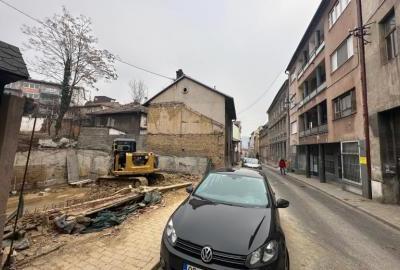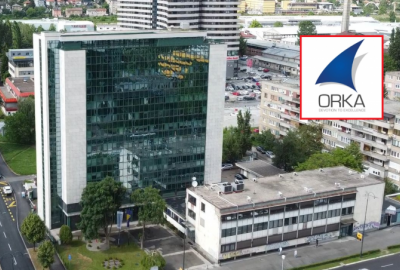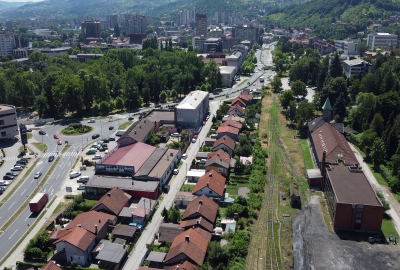Žurnal in English
RICHMOND PARK INTERNATIONAL PRIMARY SCHOOL IN BIHAĆ: Children are taught by teachers without work permits and verified diplomas
Richmond Park International Primary School in Bihać operates as part of the Richmond educational institutions. Over the past year, this primary school has been under inspection by the Cantonal Administration for Inspection Affairs in the Una-Sana Canton (USK). During this inspection, violations were found regarding the qualifications of the staff employed at the institution.
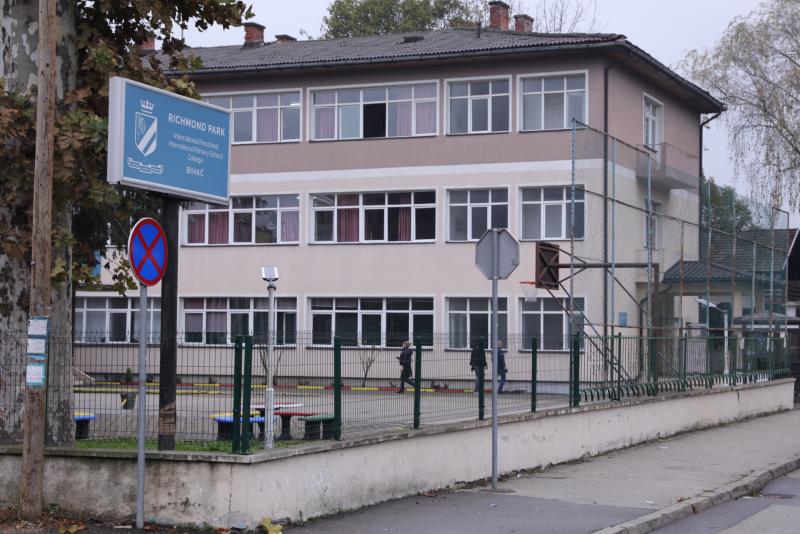
According to official data on the Richmond Park Schools website, there are currently 11 Richmond Park educational institutions in Bosnia and Herzegovina, serving more than 1,500 students. These include preschools, primary, and secondary schools in Sarajevo, Bihać, Tuzla, and Zenica (preschool only), as well as the International Burch University in Sarajevo. These institutions are successors of the Bosna Sema educational network, which was publicly linked to the late Turkish imam Fethullah Gülen. The Turkish government accused Gülen of orchestrating the attempted coup in Turkey in 2016 and has designated his movement as a terrorist organisation.
Following these accusations, Turkey sought the closure of these schools in Bosnia and Herzegovina (BiH). During a visit to BiH in March 2018, then-Turkish Prime Minister Binali Yildirim stated that FETO, as the Turkish government labelled the Gülen movement, operating in over 160 countries, including BiH, particularly in the education sector:
"I thank the BiH authorities for taking certain steps to prevent their activities, both in the education and business sectors, but we know that their activities continue. Therefore, we hope efforts in BiH to address this issue will continue," Yildirim stated.
At the time, Bosna Sema educational institutions denied any connection to the movement of Fethullah Gülen. In a public statement from 2016, they stated that the connection to Gülen had no legal or substantive basis, emphasising that "the founder of our schools is Bosnia and Herzegovina, and the laws of Bosnia and Herzegovina, which cannot in any way be associated with terrorism."
According to expert legal estimates, the value of Bosna Sema educational institutions in BiH was around 120 million BAM. In 2018, Stirling Education acquired the then-13 schools and rebranded them as Richmond Park Schools. Bosna Sema institutions came into the public spotlight in December 2015, following the suicide of 14-year-old Mahir Rakovac, a student at the International Primary School in Ilidža. His family alleged that he had been bullied, but after an investigation, the Sarajevo Cantonal Prosecutor's Office announced there was no evidence of a crime. The Bosnian public is well aware that Mahir's mother, Alisa Mahmutović, and later his stepfather, Dubravko Lovrenović, passed away in the years following this incident. Today, this case is rarely mentioned in public discourse.
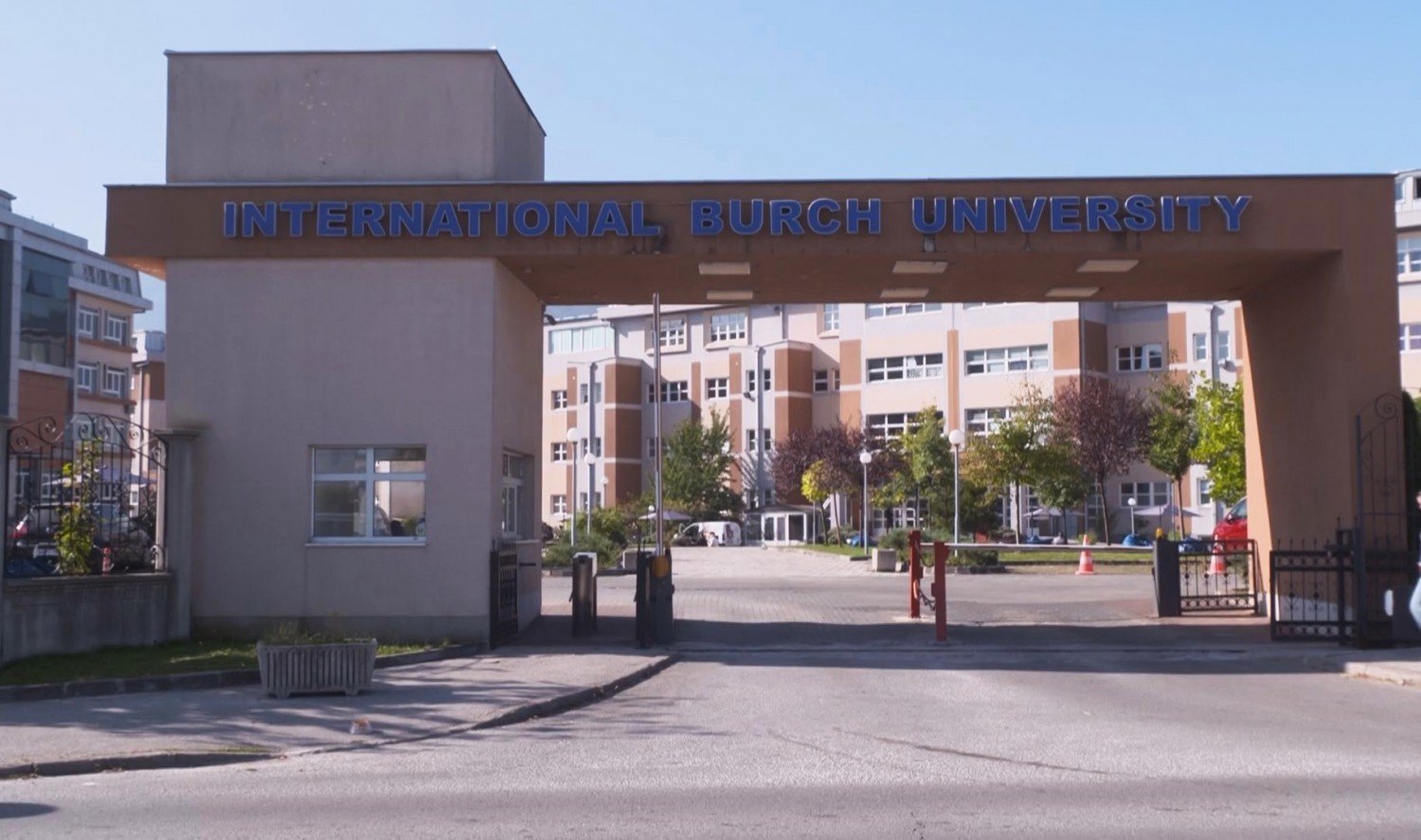
Among the Richmond educational institutions, Richmond Park International Primary School in Bihać has been under inspection by the Cantonal Administration for Inspection Affairs in the Una-Sana Canton (USK) over the past year. During this inspection, irregularities were discovered regarding the qualifications of the staff working at the institution. The information presented here was obtained by Žurnal journalists from their own sources, as the inspection did not provide specific cases. In response to Žurnal’s inquiries, the inspection administration stated that they asked the school if it would agree to release the information:
"The institution in question does not consent to the release of any information, as the inspection process is still ongoing. Sharing such information could mislead readers and could ultimately damage the institution's reputation," the inspection's response stated.
One of the identified irregularities involves Azra Hamulić. In an inspection conducted in December 2023, it was found that Azra Hamulić is employed as the school counsellor and had submitted a diploma from the University of Sarajevo, indicating her academic degree as a Master of Pedagogy and Librarianship:
“Given that the inspector was presented with a diploma for Azra Hamulić for a completed first cycle of studies lasting three years, which does not meet the requirements for the position of the school counsellor,” the inspection document states.
The inspector concluded that she was hired without the legally required procedures and without adhering to the Pedagogical Standards for Primary Education. As a result, the school director, Nermin Efendić, was instructed to fill the position in accordance with the specified standards in the Una-Sana Canton. However, based on the school's official website and social media, Azra Hamulić is still listed as the school counsellor.
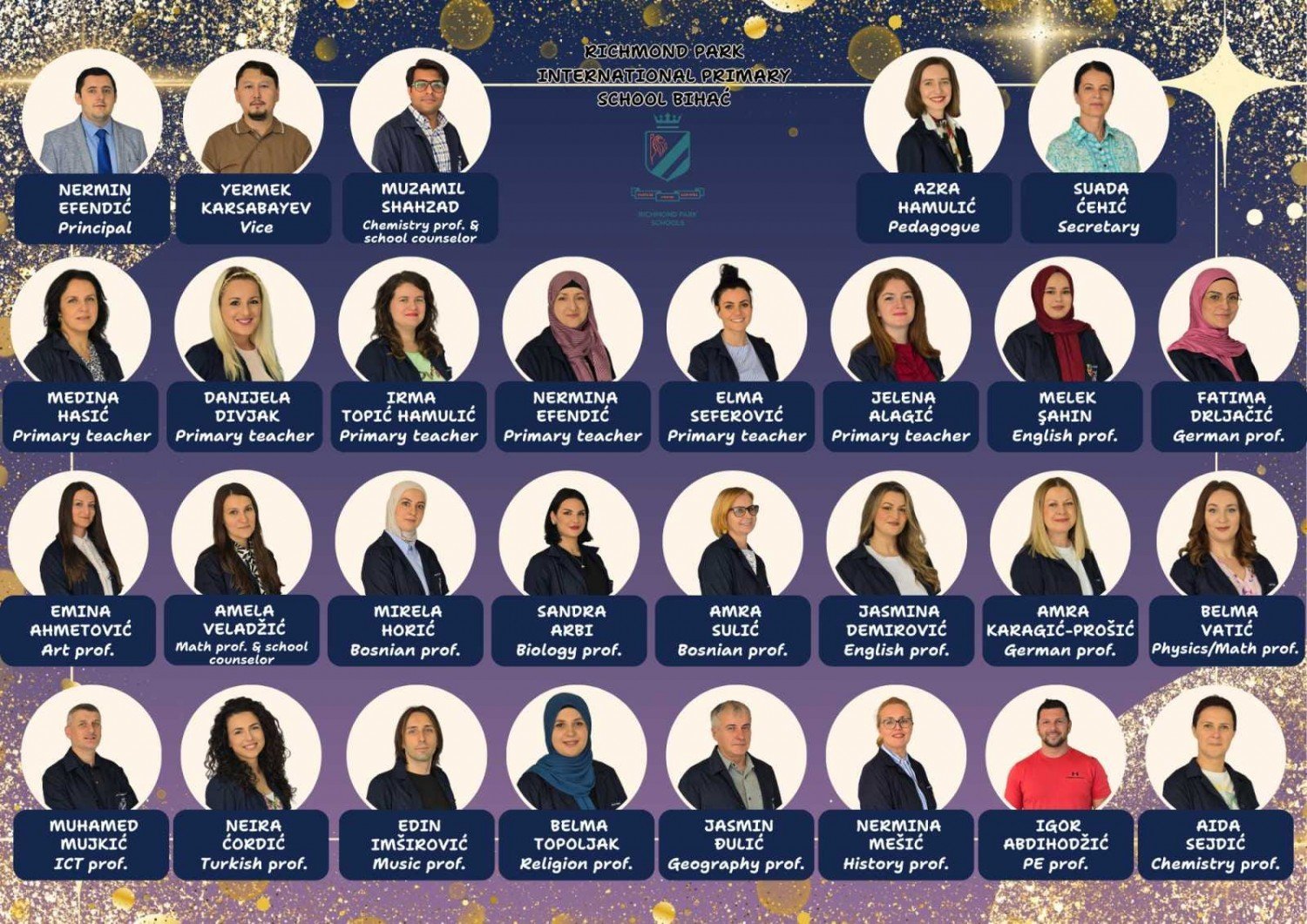
This is not the only instance where inspection authorities identified irregularities. In 2023, two individuals were employed at the school despite one not yet having had their diploma officially recognized in Bosnia and Herzegovina or completed the required internship. In the other case, an individual was hired without completing an internship or passing the professional exam. The inspection found that biology teacher Sandra Arbi had not passed the professional exam, as this was her first school position, classifying her as an intern:
“When requested by the inspector, no documentation was provided concerning the internship period, the exam for independent educational work, or the appointment of a mentor, as stipulated in Article 120, Paragraph 2 of the Law on Primary Education,” states the inspection order, which requires the school to address these deficiencies.
In October this year, the cantonal inspector for preschool, primary, and secondary education visited Richmond Park Primary School again and found issues regarding Yermek Karsabayev, a physics teacher. According to Žurnal sources, the inspection was verifying whether he had a diploma recognized in BiH, had completed an internship, and passed the professional exam. In this case, as well, Richmond and school director Nermin Efendić were instructed to rectify these issues. In addition to his educational qualifications, Karsabayev’s employment status is being reviewed by the cantonal labour inspector.
During an inspection on October 10, it was determined that Muzamil Shahzad, the school’s chemistry teacher and counsellor, lacked the necessary documentation to work at the school. The inspection found that Shahzad did not have an employment contract with the school and was not listed in the school’s employee records. When shown the payroll for September 2024, which included 37 employees, Shahzad was not among them. However, school records for higher grades list him as a chemistry teacher from September of this year; he had signed the attendance sheets but had not recorded lesson plans. Director Nermin Efendić informed inspectors that Shahzad had only partial documentation due to having worked at the Richmond school in Tuzla the previous year and that “bureaucratic delays” were hindering his transfer to Bihać.
English teacher Melek Sahin also does not have a work permit. Director Efendić informed inspectors that she holds a valid diploma, and they are awaiting her work permit. “Time is passing. We had hoped this would be resolved quickly,” he stated.
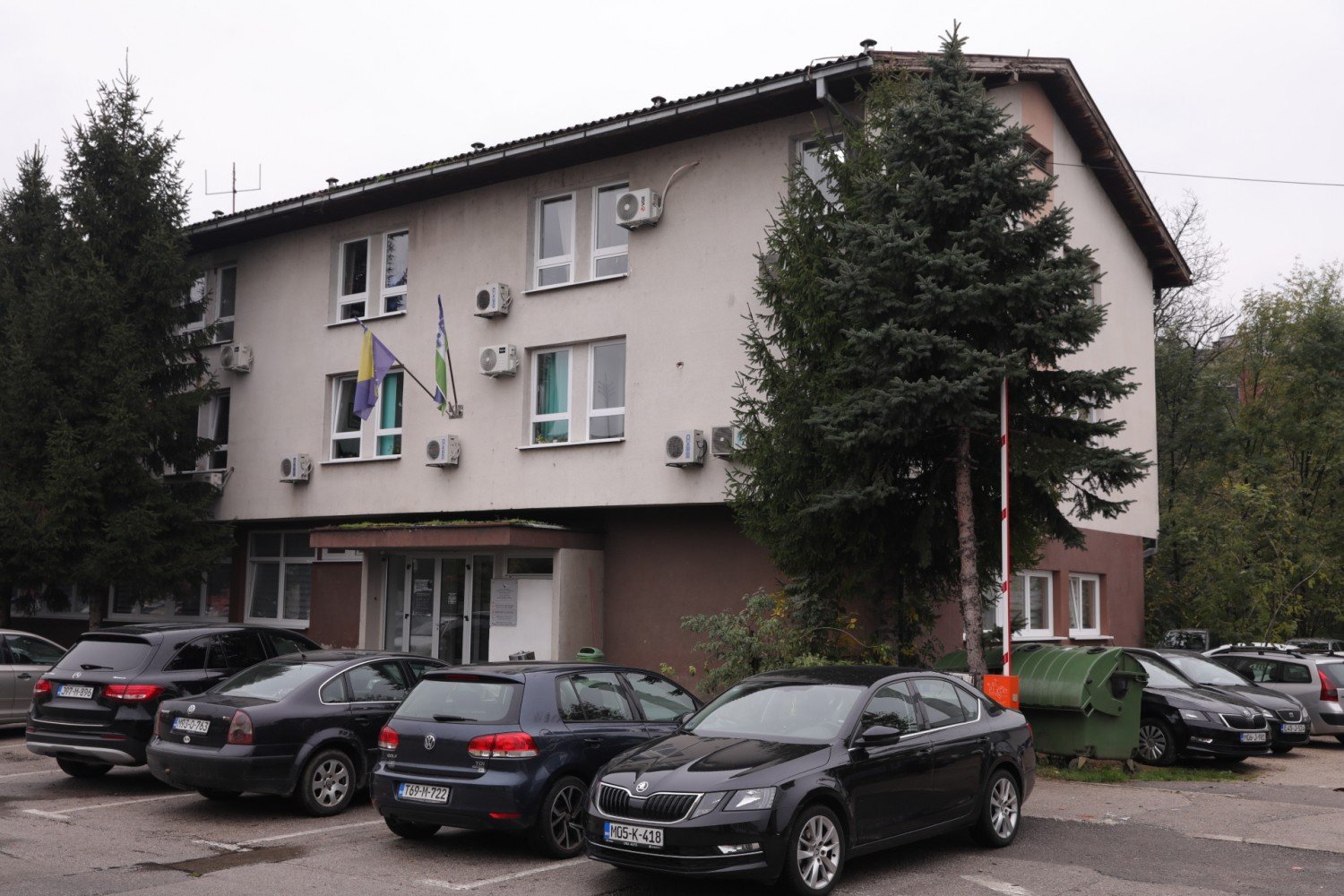
For over a month, Žurnal journalists tried to speak with the director of the Richmond primary school in Bihać about these identified issues. The director did not respond to emails or messages. In one of the final phone conversations with the school’s contact person for Director Efendić, a staff member told us: "The director was away; we just returned from a Fifth Corps assembly."
In addition to attending military assemblies, students participate multiple times a year in events related to the commemoration of the war in Bosnia and Herzegovina, including visits to military barracks and ceremonies for significant historical dates. For example, in April 2022, they visited the Adil Bešlić barracks, where children had the opportunity to handle firearms.
"Many thanks for the unforgettable moments they provided us," the school posted above photos showing young primary school children holding weapons and aiming at targets.
The school also prides itself on a "zero-tolerance policy for violence," but as part of school activities, the children were taken paintballing—an activity offered only to the boys.
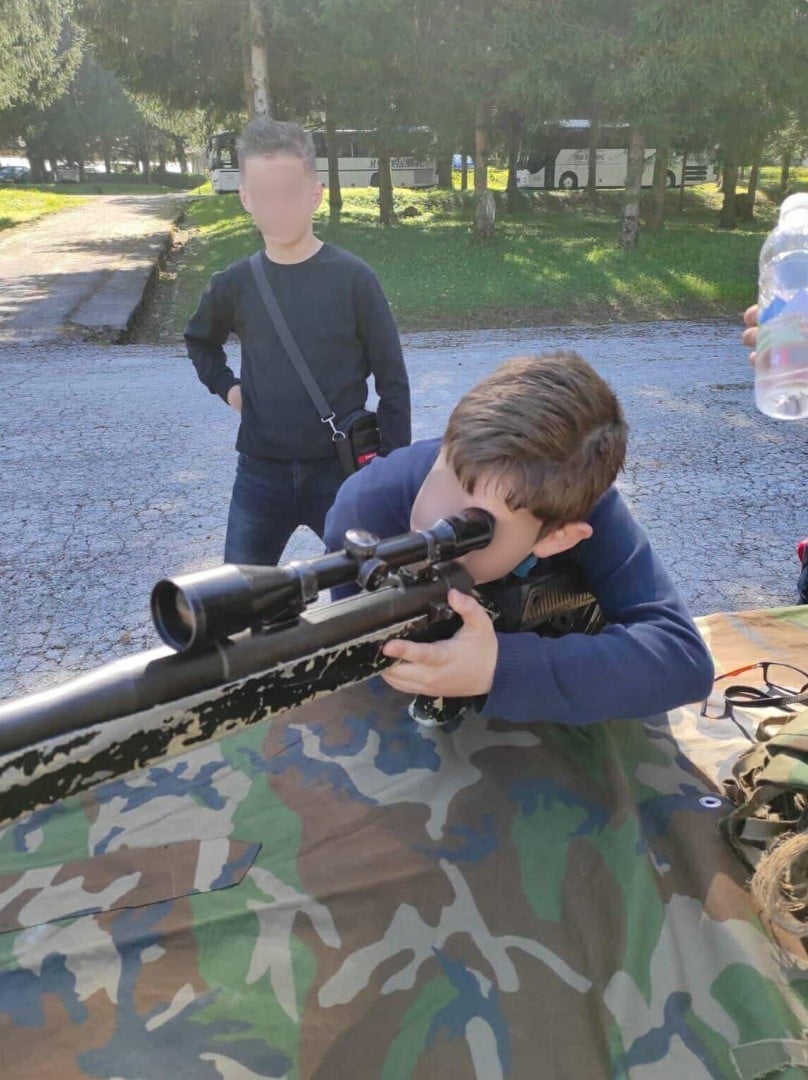
Just like Director Nermin Efendić, the Ministry of Education of the Una-Sana Canton has not responded to our questions for over a month. Since we have documentation showing that the Ministry is well aware of the irregularities at this school, we asked whether they have taken any action or plan to react in any way. On the other side – silence.
The fact that they are aware of the situation is confirmed by the response Žurnal received from the Cantonal Inspectorate for Education, Science, Culture, and Sports, which stated that they informed the Ministry about the identified irregularities:
"This inspectorate has conducted multiple inspections of the subject in question, both regular checks and inspections based on requests. In accordance with its responsibilities, the inspectorate has taken measures and actions, and the relevant Ministry of Education, Science, Culture, and Sports of the Una-Sana Canton has been notified... and misdemeanour orders have been issued for both the legal and responsible persons," they said for Žurnal.
In addition to ignoring journalists, the Ministry of Education of the Una-Sana Canton, led by Denis Osmankić (SDP), refuses to cooperate with the Office for the Fight Against Corruption of the Una-Sana Canton.
According to this office, irregularities at Richmond Primary School were also reported to them, and in April this year, they requested documentation and information from the Cantonal Inspectorate for Education, Science, Culture, and Sports, as well as the Ministry of Education, Science, Culture, and Sports of the Una-Sana Canton.
"The Ministry of Education, Science, Culture, and Sports of the Una-Sana Canton did not provide the requested information to this Office, even after a reminder was sent," the Office told Žurnal.
From the documentation provided by the Cantonal Inspectorate for Inspection Affairs, it is evident that certain irregularities were identified regarding the employment of a school counsellor and a biology teacher at "Richmond Park International Primary School" in Bihać and the prescribed legal measures were taken, including issuing orders to rectify the identified deficiencies/irregularities:
"This Office then requested information from the Cantonal Inspectorate for Inspection Affairs in Bihać about whether 'Richmond Park International Primary School' in Bihać had acted in accordance with the aforementioned orders, or whether a misdemeanour order had been issued to the school for failure to act on the legally binding decision, which instructed the school to employ a counsellor in compliance with the Law on Primary Education and the Pedagogical Standards of the Una-Sana Canton."
The Cantonal Administration for Inspection Affairs did not provide this Office with information regarding whether the "Richmond Park International Primary School" in Bihać complied with the final ruling, or if a misdemeanor order was issued in case of non-compliance. The Office has again reached out to the Cantonal Administration for Inspection Affairs, requesting information on whether the earlier ruling has been enforced. In addition to previous complaints, the Office has received another report regarding alleged irregularities at this primary school.
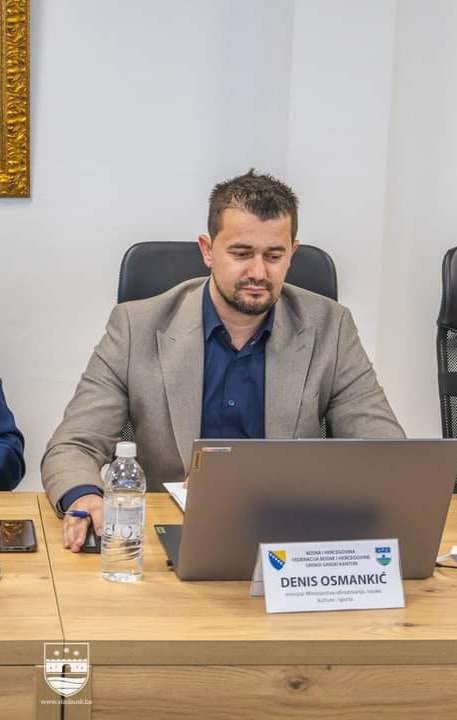
The Cantonal Prosecutor's Office of the Una-Sana Canton told Žurnal that they received a report through the Criminal Police Department of the Bihać Police Station in February 2024, regarding alleged irregularities in the employment process at the mentioned school:
"In the specific case, the collection of material documentation related to the reported event is ongoing," they stated.
We also inquired with the Pedagogical Institute of the Una-Sana Canton whether they were aware of the complaints and whether this case fell under their jurisdiction. In response, they briefly stated that their jurisdiction "excludes the information" we requested and directed us to find their jurisdiction on their website. Therefore, it can be concluded from the response that the Institute does not have the authority to intervene. One of the inspection findings noted that the Pedagogical Institute carried out a professional-pedagogical inspection at the school on November 3, 2023:
"The findings were submitted to the school with proposed measures and deadlines for implementation," the inspection document states.
The Acting Director of the Pedagogical Institute is currently Nuho Kurtović, a former Minister of Education of the Una-Sana Canton. Kurtović was sentenced to eight months in prison in May 2017 by the Bihać Municipal Court for abuse of office. Kurtović granted permits for the theoretical and practical parts of the driving test to individuals who did not meet the necessary requirements, even to himself, despite not fulfilling the conditions. In December 2017, the Cantonal Court in Bihać changed Kurtović's prison sentence to a conditional sentence. A close family member of Kurtović works at Richmond Primary School.
From the sluggish actions of certain institutions (the Office for the Fight Against Corruption, the Ministry of Education, the school, etc.), it could be concluded that, for some reason, this international educational institution is being protected. During our investigation, we gathered information indicating that the children of some employees of government institutions attend the Richmond Primary School. While we are aware of the names of both the parents and the children, as well as their high-ranking positions in institutions, we will not disclose them in order to protect the children.
Corruption in Education
Nepotism, hiring without job competitions, diploma sales... corruption in education in Bosnia and Herzegovina continues to be widespread. One of the long-time advocates against this issue is Vildana Alibabić, a university professor from Bihać who served as a member of the Assembly of the Una-Sana Canton from 2018 to 2022, representing Naša stranka (Our Party). She believes that corruption in Bosnia and Herzegovina has long become a way of life, a mindset, and a method of operation:
"It has become 'normal.' With its thousand faces, it has infiltrated every sector, and every corner of the system, making it very difficult to eradicate. The problem becomes more complex when you consider that people have entered the system through political, family, or other connections, which means through corruption, and you cannot expect them to fight against it. When you add fake, purchased, or hastily acquired diplomas, it practically becomes impossible to eradicate corruption."
Although the public expects the judicial system to react through various reports, investigations, and procedures that include inspections, the response of the relevant ministries to inspection findings (which vary depending on which political structure is in power) leads to the conclusion that in 2020, during a diploma verification process in the Una-Sana Canton (USK), out of 1,200 diplomas checked, 35 were found to be invalid, says Professor Alibabić:
"And a paradox occurs, as 11 of them were in the judicial institutions, and 10 in the educational sector—practically two-thirds in these two systems. The verification process has never been completed!? Therefore, when asked whether the responsible institutions are doing enough in the fight against corruption in education, the answer is no. They are not, and the problem starts with them."
In institutions, there are numerous examples of hiring through political, family, or other connections, but both private and public institutions should be equally subject to checks:
"There should be no difference between public and private educational institutions. Both public and private institutions are granted permission to operate by the relevant ministries, legislative, and executive bodies based on evidence that they meet the criteria for the educational process, meaning they can be controlled. The only difference in verification is which political structure the private institutions are closer to, and whether that structure is in power. A prime example is the former Vita Plus in Cazin."
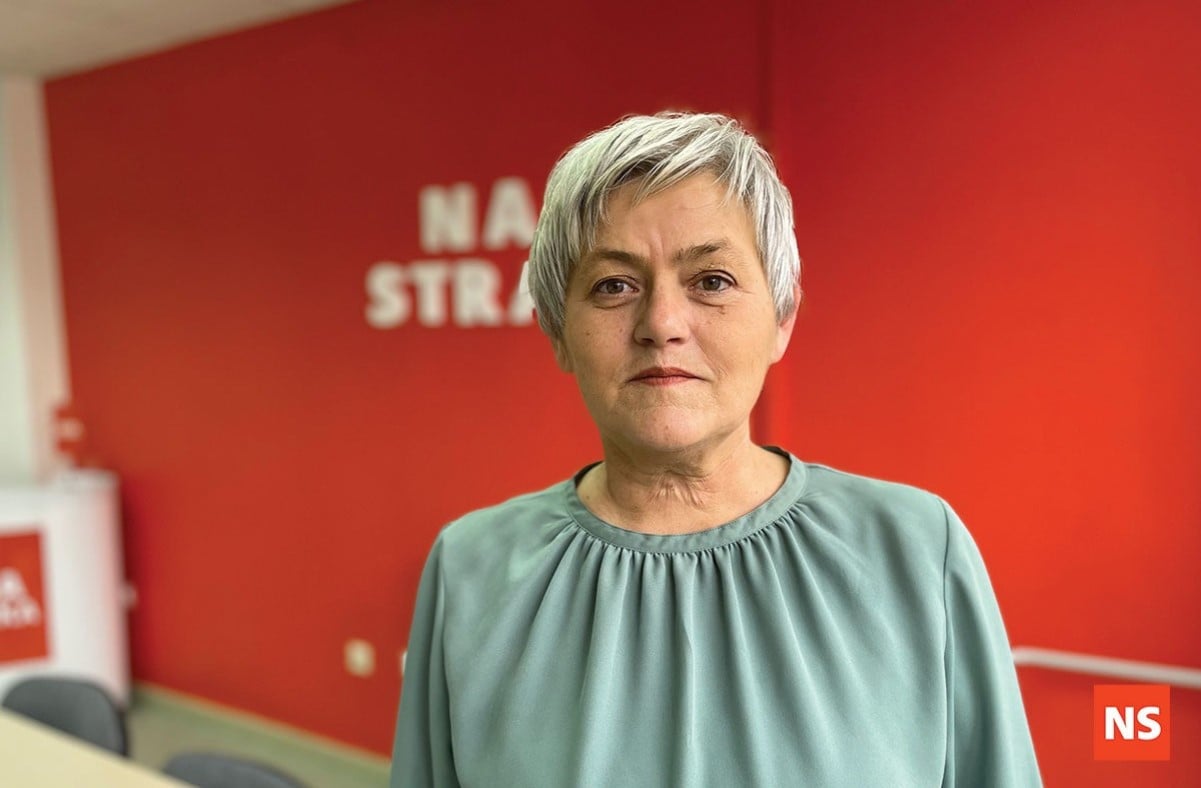
When asked whether there is more corruption in the private or public education sector, it is difficult to make a clear distinction in primary education due to the limited number of private primary schools in Bosnia and Herzegovina, says Damjan Ožegović from Transparency International BiH:
"But if we compare it in higher education, corruption may even be more prevalent in private institutions, where it’s easier to get certain grades or papers. We know of major scandals, especially in the Una-Sana Canton."
In general, Ožegović believes that corruption in education is widespread and is not being prosecuted or investigated sufficiently:
"According to our findings, most of the corruption occurs in higher educational institutions. It is considered the most widespread because it is the most well-known, or perceived to be, since students are more empowered to speak out about it compared to corruption in primary and secondary schools, where parents often do not want to antagonize teachers, nor do they have enough information from their minor children, that is, the students."
Corruption in primary and secondary schools, Ožegović says, mainly occurs in two areas: tenders/school trips and the hiring of teaching staff:
"Unfortunately, with this clientelistic approach and the education system being captured by political elites, we cannot say that we have free education or the best teaching staff. The issue is that accessing information is difficult, and one can only get it if someone from that circle, frustrated, speaks out about the problems they’ve encountered. This creates a vicious cycle where it is hard to obtain information, and perhaps some independent institutions cannot act and alert on irregularities. At the same time, some public authorities refuse to act because they are part of these networks. It is no secret that all institutions above schools, which are supposed to regulate this area and lead it—various agencies and ministries—if indications arise, the prosecution often lacks the strength and will to react to these irregularities."
When TI appears as a whistleblower, they struggle to get any information, and usually, they receive no response from the ministries responsible for this area, making them the weakest link:
"And even when they do negotiate, the responses are typically that checks will be carried out, but it takes a lot of time—months, even years—before any information is provided, and it is often unsatisfactory. The indications that existed for irregularities before these bodies are not proven strong enough, which indicates procedural irregularities within these institutions."
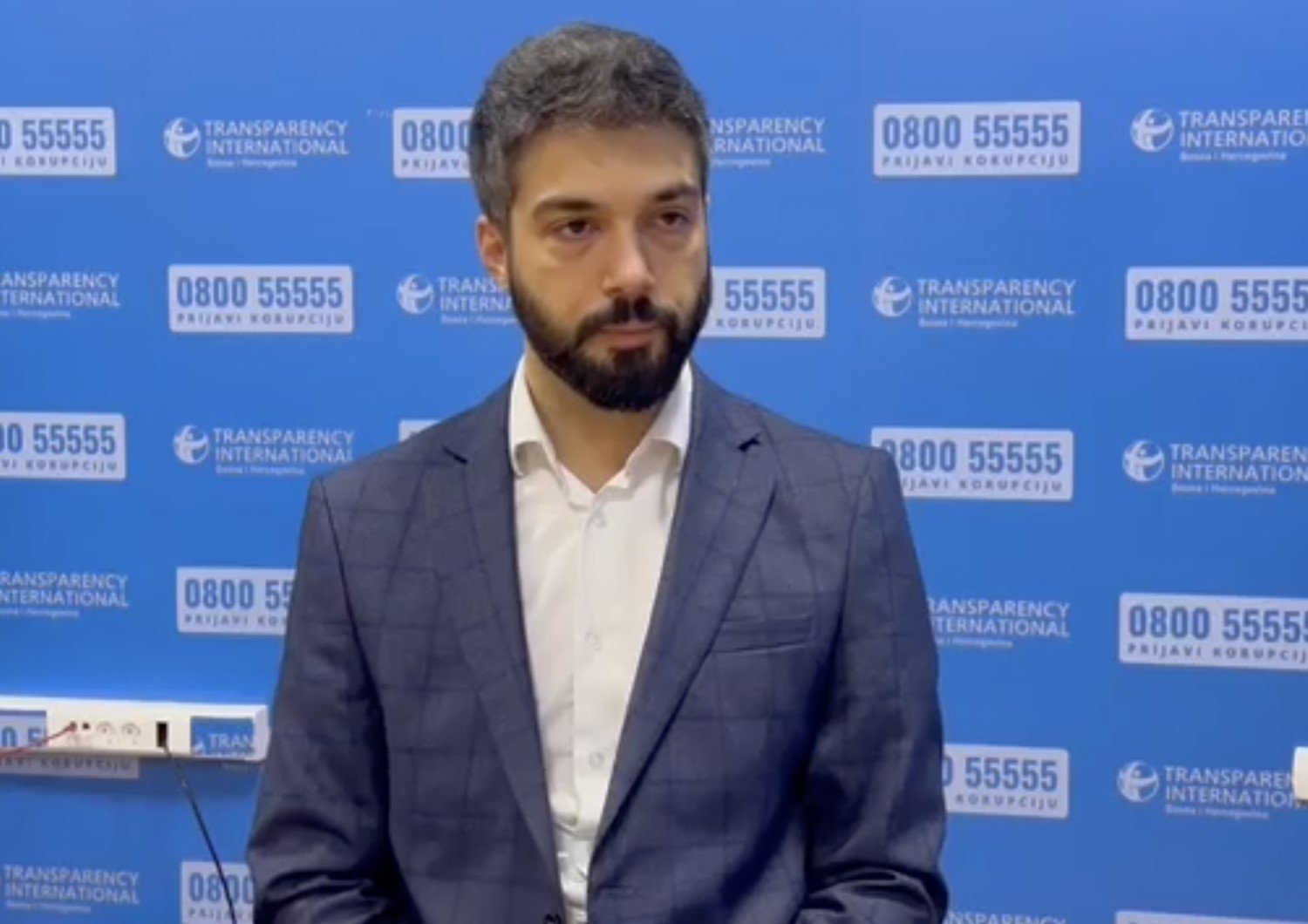
Professor Alibabić states that all of this leads to a poor or mediocre workforce, which poorly or mediocrely implements the education process:
"There is no excellence that will engage students or produce innovative and creative potential for the future. It should be noted that there are individuals who are above this mediocrity due to their knowledge and work, as it would not be fair not to mention them. However, there is no critical mass to reverse the direction. The trend of emigration, which is still very intense, contributes to the fact that there are no real choices now; more and more staff are missing, and we are left with what is available, and this closes the loop. Generationally, the mistake has already been made."
Is it possible to effectively fight corruption? Professor Alibabić is asked.
"Yes, it is possible, and the question is not how to fight, but whether there is the will to fight corruption! The system must do this. Looking at countries that have overcome corruption, it is clear that attention must be paid to public administration, recruiting quality and incorruptible civil servants, paying them well, enacting regulations, and working. It is especially important that those who commit corrupt acts are punished, and severely so. They should not be able to 'buy' their way out of prison. The most important thing is to be transparent and disclose the results of bodies dealing with the fight against corruption to restore trust in the system and motivate everyone to engage in an even stronger fight," she says for Žurnal.
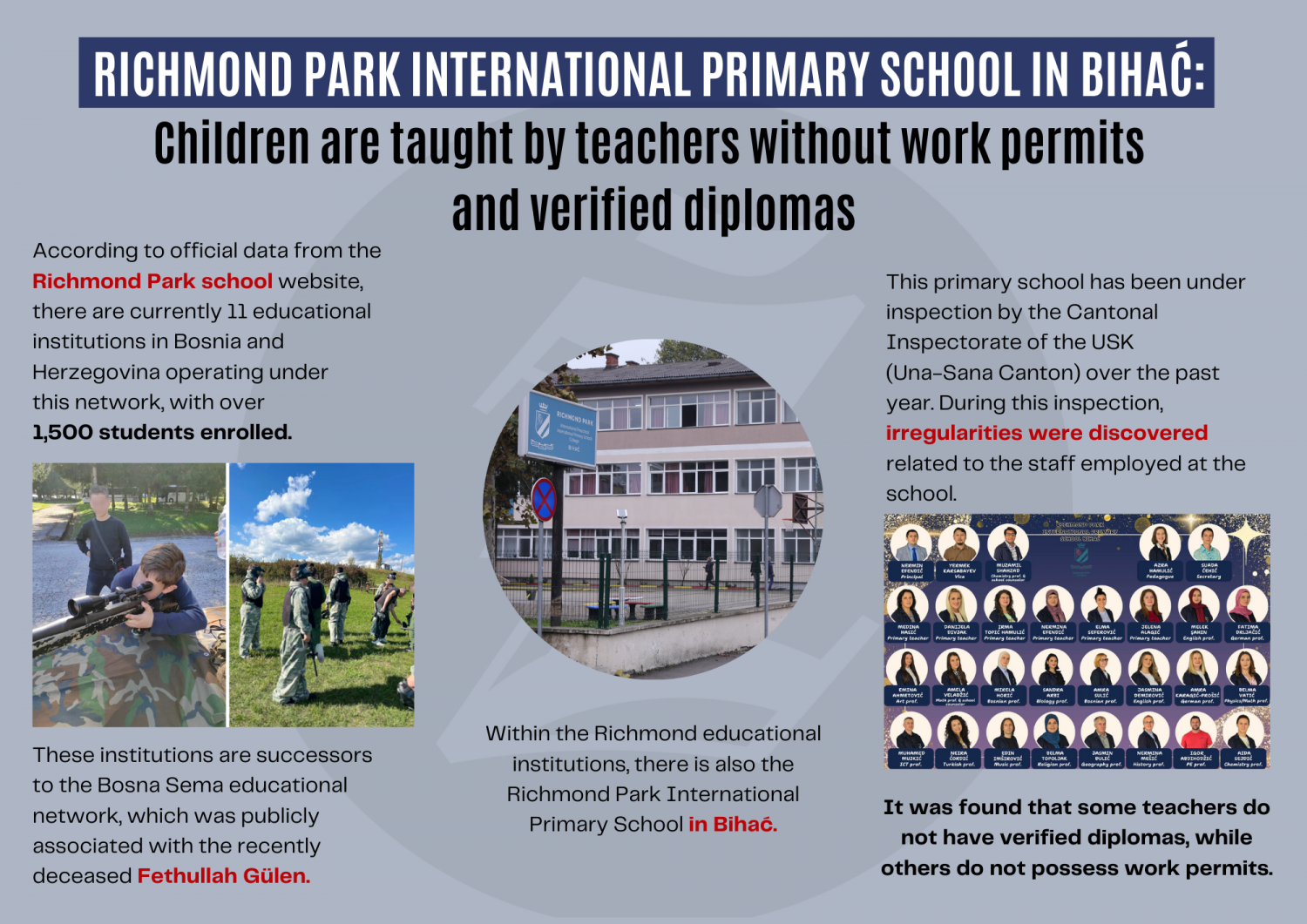
(zurnal.info)





